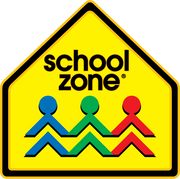What is happier than a child’s beaming smile following a big win? And what is sadder than tears of defeat or disappointment after a loss? Yet both are part of life.
Competition is a reality
Last year a blog post from the Tiger-Rock Martial Arts Academy in New Braunfels, TX, noted that “Healthy competition helps improve the experience for everyone in sports, games, school, and even the workplace.” The post adds that “Children can learn a lot from healthy competition, which is why it is so meaningful they learn through their parents, teachers, and instructors.”
Similarly, an article by Devan McGuinness, for Parents, titled "Why Competition Is Good for Kids (and How to Keep It That Way)," says that “When done right, competition can help your children learn skills they’ll use throughout their lives.” The post discusses how teaching empathy and teamwork are part of showing kids what healthy competition looks like.
Let’s face it, disappointing losses are pretty much an inevitable part of life. McGuinness says that “Besides setting them up for wins and losses later in life…competitive activities help them develop important skills they’ll use well into adulthood, like taking turns, developing empathy, and tenacity.”
She quotes Timothy Gunn, Psy.D., a pediatric neuropsychologist, owner of of Gunn Psychological Services, Inc., in Southern California, and a judge on Lifetime Network’s Child Genius: Battle of the Brightest docu-series, who says that “Competition helps kids learn that it is not always the brightest who are successful, but rather those that work hard and stick with it.”
Talking it through is important
This past summer, ahead of the Olympic Games in Tokyo, Studio 5 with Brooke Walker, a program produced by KSL Broadcasting in Salt Lake City, UT, shared "Healthy Competition: 6 Ways to Make Competing a Positive Experience for Kids" from parenting contributor Heather Johnson.
“Competition is not going anywhere,” she says, adding that “We don’t always approach it the right way.” She also notes, “We want them to know it’s not about the uncomfortable feelings never being there, it’s when we feel those things, we’ve got to know how to deal with them.”
Johnson advises that “We want to have a growth mindset, right? A growth mindset means that regardless of what happened today, I can work hard, I can develop new skills, I can improve, I can progress.”
She also suggests that parents be mindful of how they talk to kids about performance and outcomes. Johnson says, “It is so important that we approve of what they’ve done, or that we support them, regardless of if they win or lose.” She says that a great way to approach discussion of a game or situation is to simply ask kids how they felt it went.
Post-game analysis, done the right way, can build multiple skills
In another article on healthy competition, Green Child Magazine, back in June, reported on a study that “revealed 70% of U.S. children drop out of organized sports by age 13, with pressure and burnout among the main reasons cited.”
According to the article, a bottom line lesson for kids is this: “Losing is a chance to get better.” It’s a learning experience, and Green Child advises parents to “Let your child know he didn’t lose, he got a chance to evaluate ways to improve.” It continues, “Teaching your child that his loss wasn’t because he’s terrible is an important confidence boost for later in life.”
It also says that discussing with kids the areas that they want to work on and improve, and figuring out the steps to take, provides opportunities to develop personal responsibility, critical thinking, and goal-setting skills.
Get started with early game play
For games that build important readiness skills for preschoolers as they also develop a sense of healthy competition, check out Rummy Farm Animal Card Game, Memory Match Farm Card Game, Slapjack Farm Card Game, and Dino Dig Card Game.

Slightly older kids can sharpen their math skills and their competitive edge with Math War Addition & Subtraction Game Cards and Math War Multiplication Game Cards for ages 8 and up.

Looking for quick game play for anyone in the family? The online learning system Anywhere Teacher offers a fresh spin on checkers. Choose from 10 pair of game piece critters, then play against a friend or the computer. Checkers boosts critical thinking, concentration, and memory skills. “Hmmm…that got me captured. I won’t do that again!” Players expand their moves and strategies with each game.

Competition is a reality of our world. Successfully navigating it takes guided practice and coaching.










